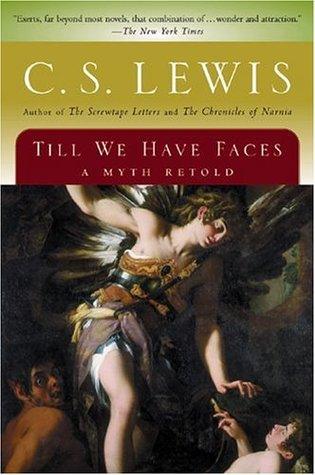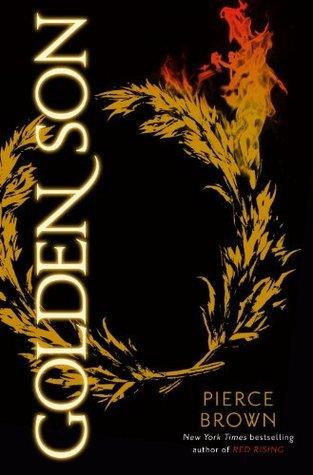Till We Have Faces by C.S. Lewis Book Summary
Discover a comprehensive summary and insightful review of C.S. Lewis's "Till We Have Faces." Explore key themes, character analysis, and profound insights that reveal the depth of this timeless tale. Perfect for readers seeking to understand the essence of Lewis's work and its impact on literature.
Till We Have Faces Book Summary
C.S. Lewis's final novel, Till We Have Faces, stands as his most psychologically complex work, retelling the ancient myth of Cupid and Psyche through the eyes of Orual, Psyche's jealous sister. This profound exploration of love, jealousy, and divine justice challenges readers to examine their own motivations and the masks they wear in relationships. The novel delves deep into themes of spiritual transformation, self-deception, and the painful journey toward understanding both human nature and divine love, making it arguably Lewis's most mature and introspective literary achievement.
Discover valuable lessons and deep insights in the Point of Retreat Book Summary, Review & Key Insights to enhance your understanding and enrich your reading experience.
Till We Have Faces by C.S. Lewis - Introduction
I had no idea that a retelling of a Greek myth could make me question how I see love and sacrifice in such a deep way. That’s exactly what happened when I read Till We Have Faces by C.S. Lewis. At first, I picked it up because I’m a sucker for mythology and thought it’d be a straightforward fantasy story. But it turned out to be so much more—blending fiction, philosophy, and even Christian themes in a way that felt incredibly personal.
What surprised me most was how Lewis uses the story of Cupid and Psyche to explore the idea of love—not just romantic love, but the kind of love that’s about understanding and truly seeing someone, even when it’s uncomfortable. It made me rethink how often I might be hiding behind my own “faces,” or masks, instead of being honest with myself and others.
If you’re someone who enjoys classics or likes books that make you pause and reflect on faith, identity, and what it means to really connect with others, this book will speak to you. It’s perfect for anyone curious about Christian fiction or literature that weaves together religion and mythology without feeling preachy.
At around 313 pages, it’s a manageable read—you could finish it in a weekend if you set aside some quiet time. Honestly, I felt like every page was worth savoring. If you want a book that challenges you but also feels like a conversation with a wise friend, this one’s for you.
What is Till We Have Faces About?

"Till We Have Faces" by C.S. Lewis is a retelling of the myth of Cupid and Psyche, narrated by Orual, the ugly sister who struggles with love, jealousy, and the nature of the divine. The book's main message emphasizes the complexity of love and the necessity of facing one's true self to find genuine connection with others and God. Key concepts include the conflict between appearance and reality, the transformative power of suffering, and the journey toward self-acceptance and understanding of divine love.
About Book Author - C.S. Lewis
It's a true pleasure to introduce someone whose own story is as fascinating as the ones he tells. C.S. Lewis didn't start out as the familiar voice behind The Chronicles of Narnia. His journey to writing Till We Have Faces, a work he considered his most mature, was a long and deeply personal engagement with the ancient myth of Cupid and Psyche, one he pondered for decades. What's interesting about C.S. Lewis is his lifelong, almost childlike, enchantment with mythology, which began in his youth and profoundly shaped his understanding of human longing and the divine. This wasn't mere academic interest; he felt the power of these stories.
- This deep immersion in myth, combined with his own profound spiritual transformation, gave him a unique perspective.
- He possessed an extraordinary ability, also evident in The Screwtape Letters, to weave complex philosophical and theological ideas into narratives that resonate with raw human experience. That's why he was uniquely qualified to write Till We Have Faces; it’s a novel born from genuine introspection and a deep empathy for our search for meaning in a world that often feels veiled.
More Books To Find
Till We Have Faces - Book Overview
It's a retelling of the myth of Cupid and Psyche, but from the perspective of Psyche's sister, Orual. The main idea revolves around themes of love, jealousy, and the struggle for self-identity. Orual grapples with her feelings towards Psyche and the gods, ultimately questioning the nature of love and whether it can be truly understood or controlled.
C.S. Lewis wrote it to explore deeper truths about human emotions and relationships. He wanted to show that our perceptions can often be flawed, and that the way we view love and sacrifice can be complicated by our own insecurities and desires. It’s not just a story about gods and myths; it’s a reflection on the human condition.
What sets this book apart is its psychological depth. While many stories focus on straightforward narratives of love and betrayal, Lewis dives into the internal struggles of Orual, making her relatable and real. Her journey feels like a mix of a fairy tale and a philosophical inquiry, which is quite different from other myth retellings.
One story that really stuck with me is when Orual confronts the gods about her suffering. She challenges them, asking why they let her endure so much pain. It’s a moment that resonates with anyone who has ever felt abandoned or misunderstood, and it captures the essence of Lewis’s exploration of faith and doubt.
Key Insights of Till We Have Faces
1. The Nature of Love: The novel explores the complexity of love and its various forms, including selfishness and sacrifice. The protagonist, Orual, grapples with her feelings for her sister, Psyche, revealing how love can be both protective and possessive.
2. Identity and Masks: The theme of identity is central, with characters wearing metaphorical masks to shield their true selves. Orual's journey reflects the struggle to uncover her authentic identity beyond societal expectations and personal insecurities.
3. The Role of the Divine: C.S. Lewis delves into the relationship between humanity and the divine, questioning the nature of gods and their interaction with mortals. The story challenges readers to consider faith, doubt, and the complexities of belief.
4. Perception vs. Reality: The narrative emphasizes how perception shapes reality. Orual's perspective is often clouded by her emotions, leading to misunderstandings and misinterpretations of events and relationships, highlighting the importance of self-awareness.
5. Redemption and Transformation: Ultimately, the book presents a journey of redemption. Orual's transformation from jealousy and bitterness to understanding and acceptance illustrates the possibility of change and the power of confronting one’s flaws.
Who Should Read This Book
"Till We Have Faces" by C.S. Lewis is ideal for readers who appreciate rich, philosophical narratives and classic literature. Fans of mythology and those intrigued by the exploration of love, identity, and the nature of the divine will find this retelling of the Cupid and Psyche myth captivating. It's particularly suited for those who enjoy deep character development and moral introspection. Additionally, C.S. Lewis enthusiasts and anyone seeking a thought-provoking read that challenges perceptions of faith and truth will find this book both enlightening and engaging.
Read If You Are
- A fan of C.S. Lewis's philosophical and theological insights
- Interested in retellings of classic myths with deep emotional and psychological themes
- Seeking a thought-provoking exploration of love, identity, and the nature of the divine
Skip If You Are
- not interested in mythological retellings or allegorical tales
- looking for a fast-paced, action-driven narrative
- prefer contemporary fiction over classic literature
Important Takeaways from this Book
-
Reflect on Your Identity: Spend 10 minutes each day journaling about who you truly are beyond societal expectations. This matters because understanding your authentic self fosters personal growth and strengthens relationships. Consider what roles you play in life and how they align with your true desires.
-
Practice Empathy: Engage in a conversation with someone you disagree with. Actively listen and try to understand their perspective without judgment. This builds connection and broadens your worldview. Be open-minded and patient; it may require stepping out of your comfort zone.
-
Embrace Vulnerability: Share a personal story or struggle with a trusted friend or family member today. This creates deeper connections and encourages others to open up. Ensure you choose someone who will respond with support and understanding, as vulnerability can feel risky.
-
Set Boundaries: Identify one area in your life where you feel overwhelmed and establish a clear boundary today. Communicate this boundary to those affected. This is crucial for maintaining your mental health and personal space. Be prepared for pushback; standing firm is essential for your well-being.
-
Engage in Selfless Acts: Commit to doing one small act of kindness for someone else today, whether it’s a compliment, helping with a task, or volunteering. This enriches your life and fosters a sense of community. Ensure your act is genuine and spontaneous to maximize its impact.
Book Review
I picked up "Till We Have Faces" by C.S. Lewis expecting a straightforward retelling of the myth of Cupid and Psyche, but what I got was a deeply introspective exploration of love, identity, and the nature of the divine. Lewis’s narrative style is rich and immersive, drawing me in with vivid descriptions and philosophical musings that kept me engaged throughout.
One of the book's greatest strengths is the depth of its characters, particularly Orual, the protagonist. Her internal struggles and complex emotions are beautifully rendered, making her journey relatable and poignant. For instance, her jealousy and longing for love are portrayed with such raw honesty that I found myself reflecting on my own relationships. The pacing, however, felt uneven at times; certain sections dragged on, especially in the middle, which made it challenging to maintain momentum.
While I appreciated the philosophical themes, there were moments where the dialogue became overly dense, which might deter casual readers. I found myself rereading passages to fully grasp their meaning, which slowed the pace down even further. Compared to other Lewis works, like "The Chronicles of Narnia," this novel is far more introspective and less accessible, but it offers a richer emotional experience.
Overall, I think "Till We Have Faces" is a profound read for those who enjoy literary fiction with philosophical depth. If you're looking for a quick, light read, this might not be for you. However, if you're willing to invest time in character development and thematic exploration, I highly recommend it.
Final Thoughts
If I'm being honest, finishing Till We Have Faces left me with a profound sense of reflection on the nature of love, identity, and the divine. My overall takeaway is that Lewis masterfully intertwines myth and personal struggle, prompting readers to confront their own understanding of truth and faith.
I'd definitely recommend this if you're someone who enjoys deep, philosophical narratives or has an interest in mythology. However, skip this one if you're looking for a fast-paced read or a straightforward plot; it requires patience and contemplation. The thing that surprised me most was how Lewis's exploration of the human condition felt so relevant, even today.
Months from now, I think the theme of self-discovery will stick with me, especially the idea of confronting our own facades. As for rereading, I’d choose the full book over a summary; there’s so much nuance that a summary just can’t capture.
Personally, my reading experience was enriching, albeit challenging at times. It pushed me to think deeply about my beliefs and the stories we tell ourselves. I genuinely enjoyed it and feel it’s a book that will resonate with me for a long time.
Frequently Asked Questions
How long does it take to read Till We Have Faces?
The average reading time for "Till We Have Faces" by C.S. Lewis, which has 313 pages, is approximately 8 to 10 hours, depending on your reading speed. Enjoy immersing yourself in this thought-provoking tale!
What makes "Till We Have Faces" different from other books in this genre?
Till We Have Faces uniquely blends myth and theology, offering a profound exploration of love, identity, and the divine. Unlike typical fantasy, Lewis delves into psychological depth and moral complexity, challenging readers to confront their perceptions of truth and the nature of the gods.
Who is the target audience for Till We Have Faces
The target audience for "Till We Have Faces" by C.S. Lewis includes readers interested in mythology, Christian allegory, and philosophical themes. It appeals to those who appreciate deep character exploration and the complexities of love, identity, and faith, particularly in a narrative context.
Are there any criticisms or limitations of Till We Have Faces
Some criticisms of "Till We Have Faces" include its complex narrative style, which some readers find challenging, and its slower pacing compared to Lewis's other works. Additionally, some argue that the themes may feel less accessible to those unfamiliar with mythological or philosophical contexts.
What is the main theme of Till We Have Faces by C.S. Lewis
The main theme of "Till We Have Faces" by C.S. Lewis explores the nature of love, identity, and the divine. It delves into the complexities of human relationships and the quest for true understanding, ultimately emphasizing the transformative power of love and the search for authenticity.
Tags:
C.S. Lewis, Till We Have Faces, Till We Have Faces Author, Till We Have Faces Book, Till We Have Faces Book Description, Till We Have Faces Book Rating, Till We Have Faces Book Review, Till We Have Faces by C.S. Lewis, Till We Have Faces ISBN, Till We Have Faces Short Summary

Michel Fisher
Michel Fisher is a passionate fiction enthusiast and book blogger who writes about emotional reads, character-driven stories, and contemporary romance authors that captivate hearts and minds.

Till We Have Faces
Book Overview
Description
In this timeless tale of two mortal princesses- one beautiful and one unattractive- C.S. Lewis reworks the classical myth of Cupid and Psyche into an enduring piece of contemporary fiction. This is the story of Orual, Psyche's embittered and ugly older sister, who posessively and harmfully loves Psyche. Much to Orual's frustration, Psyche is loved by Cupid, the god of love himself, setting the troubled Orual on a path of moral development.Set against the backdrop of Glome, a barbaric, pre-Christian world, the struggles between sacred and profane love are illuminated as Orual learns that we cannot understand the intent of the gods "till we have faces" and sincerity in our souls and selves.
Key Points
Identity and self-discovery
Characters
Psyche (mythology), Orual
Publisher
Harcourt Paperbacks
First Publish Date
10/28/56
Awards
Tähtifantasia Award Nominee (2014)





